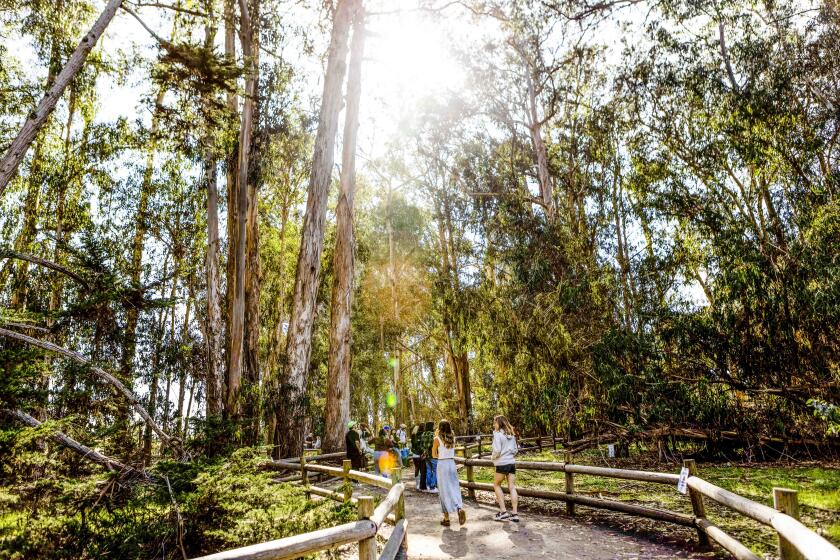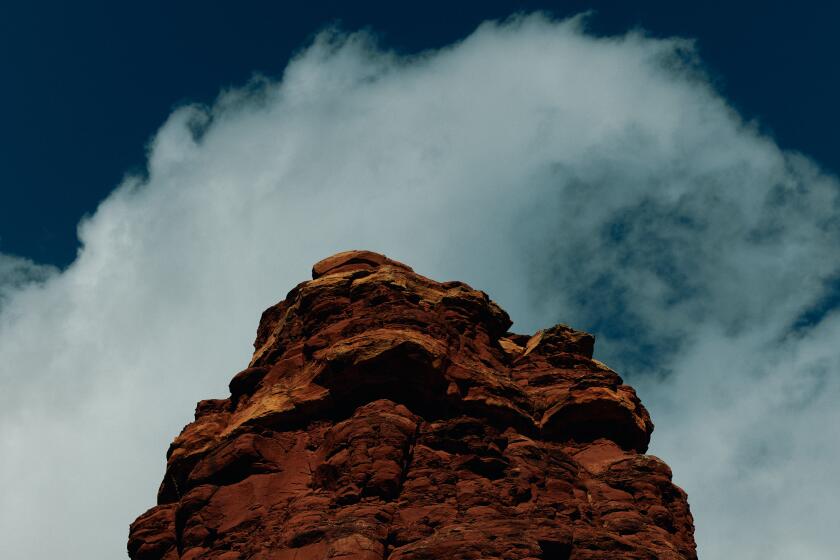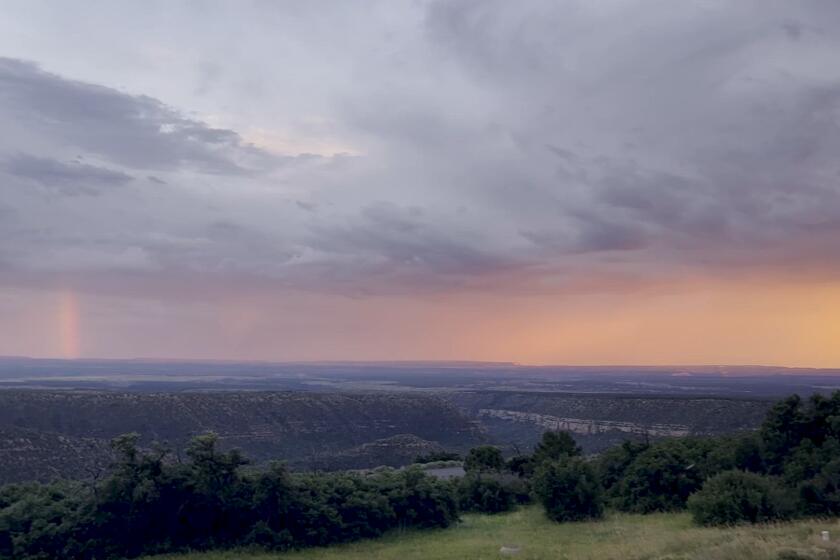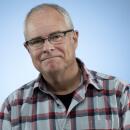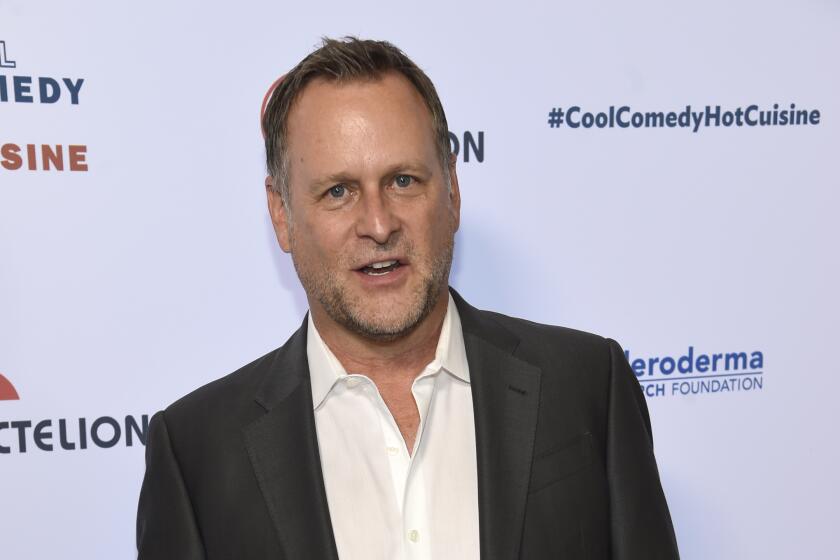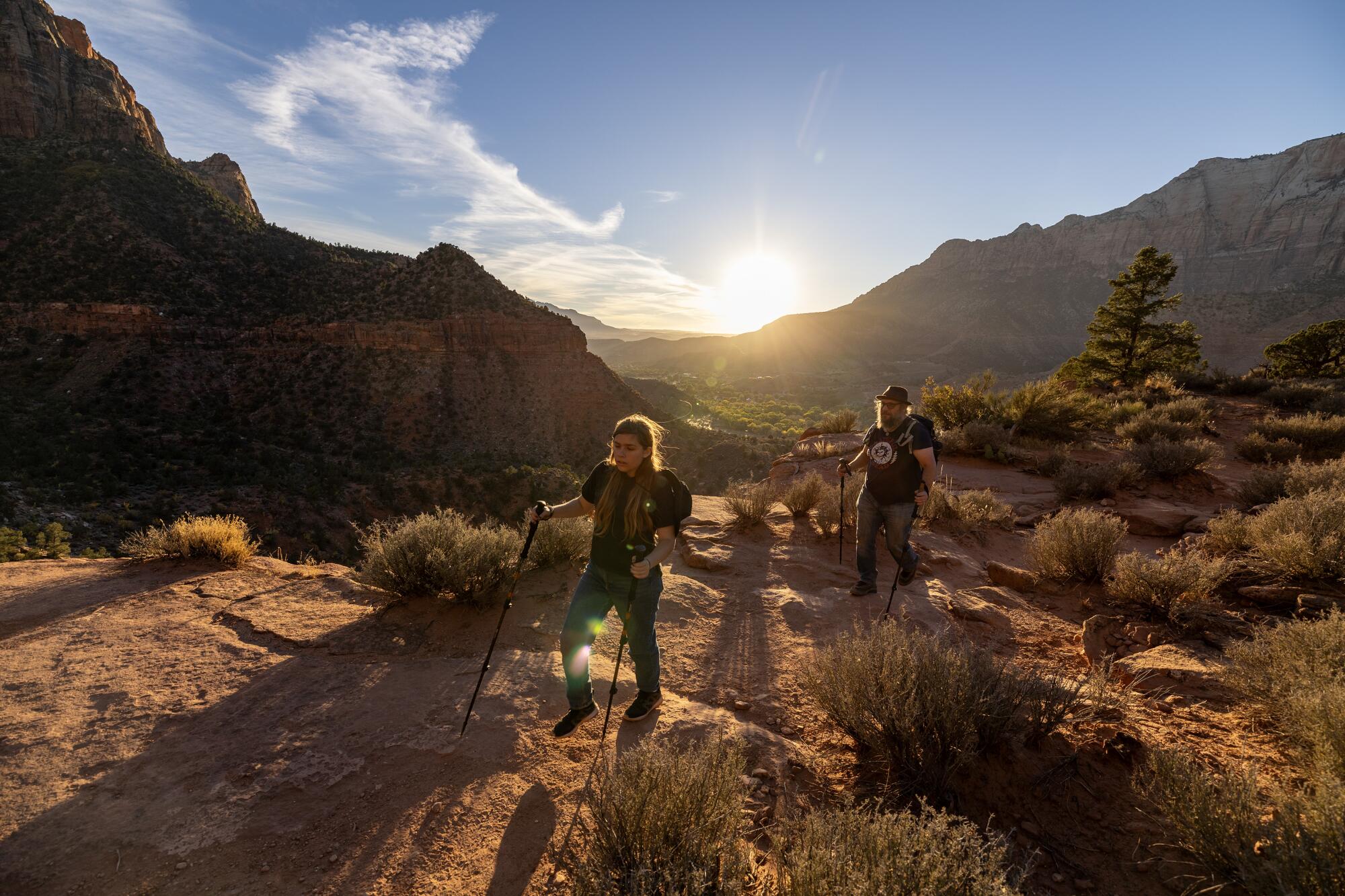
ZION NATIONAL PARK, Utah — In the cold dark of a November night, beneath the jagged cliffs of Zion National Park, Dani Hsia posed a question that mystics and religious thinkers have pondered for millenniums.
“Why are we here?” she asked, a headlamp illuminating her handwritten notes as the first stars began to emerge in the sky. “Why are any of us here? Why does the universe exist instead of nothing?”
Seated in a circle around her, their faces lit by a crackling campfire, 20 nonbelievers listened with reverent attention. Like Hsia, they had signed up for this year’s Atheist Adventure camping trip to contemplate humanity’s deepest questions and experience awe and wonder in one of the most beautiful landscapes in the West — all without the threat of anyone bringing God into the conversation.
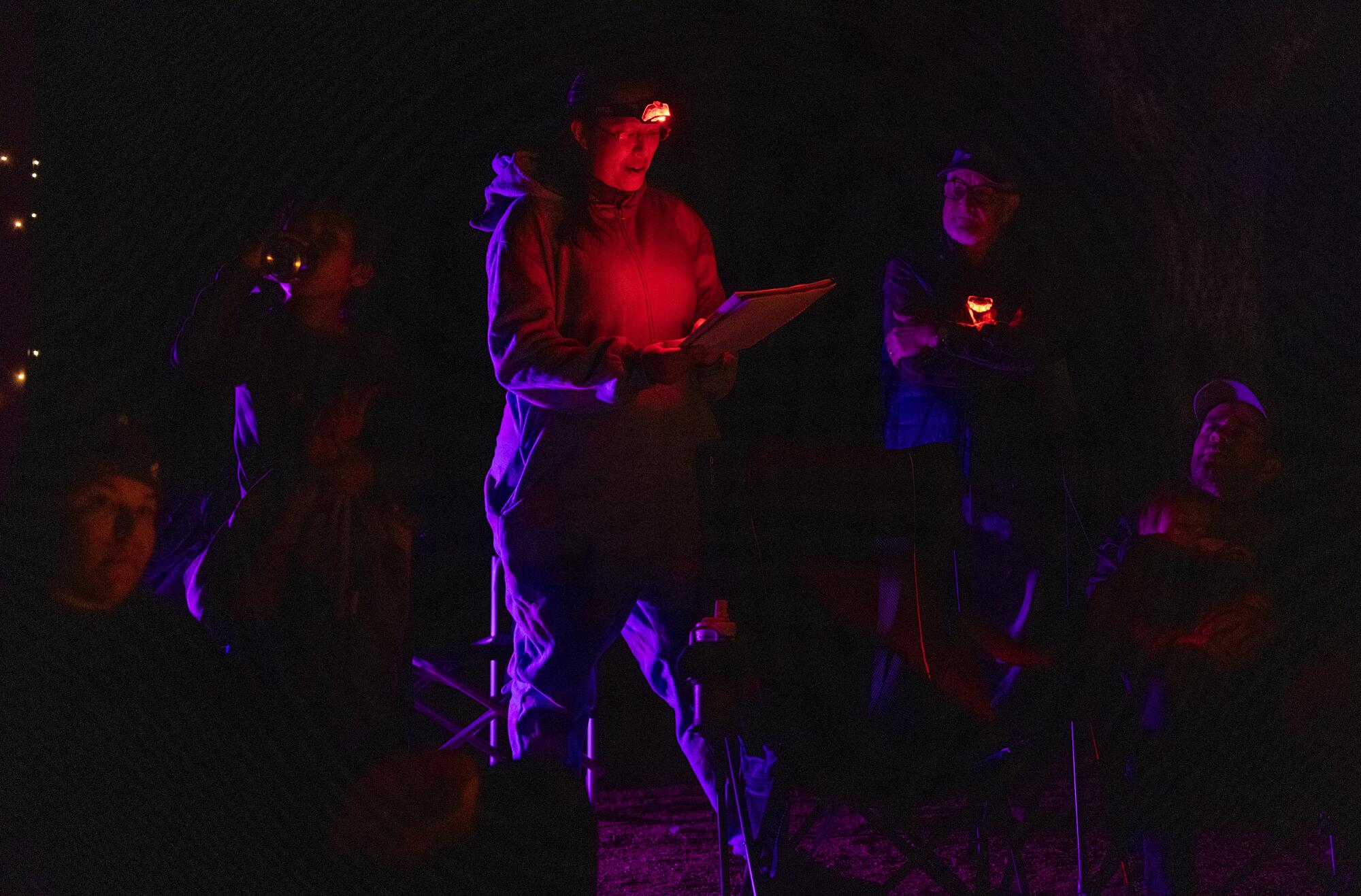
“These are the people who I can openly talk to about who I am and what I believe in,” said Frances Aragon, who made the seven-hour drive from Boyle Heights to Springdale, Utah, with her 9-year-old son. “I don’t feel like I’m an outsider, and I don’t feel like my religious views have to be hidden.”
No. 1 on the list? Pismo State Beach. Its North Beach Campground has 103 campsites.
Hsia, who was dressed in a purple and pink polka dot monster costume that had the benefit of being both a little silly and very warm, said communal atheist experiences like this camping trip help her create a moral and ethical framework for her 3-year-old son.
After growing up in a devout Bahai household, she felt that her very foundation was swept away when she lost faith in God eight years ago. When her son was born, she worried how to parent in the absence of the religion of her youth.
“I want him to feel all these things — to feel humble and awe and connection,” she said. “These kinds of events are important to me because they shape how I talk to him and help him understand how to be a good human.”
Craving existential wonder and community — sans God
Atheist Adventures, now in its third year, was conceived and organized by Evan Clark, executive director of Atheists United. Founded in Los Angeles in 1982, Atheists United has long offered nonbelievers in Southern California a welcoming space to connect with like-minded folks — a sort of religious community for people who eschew religion.
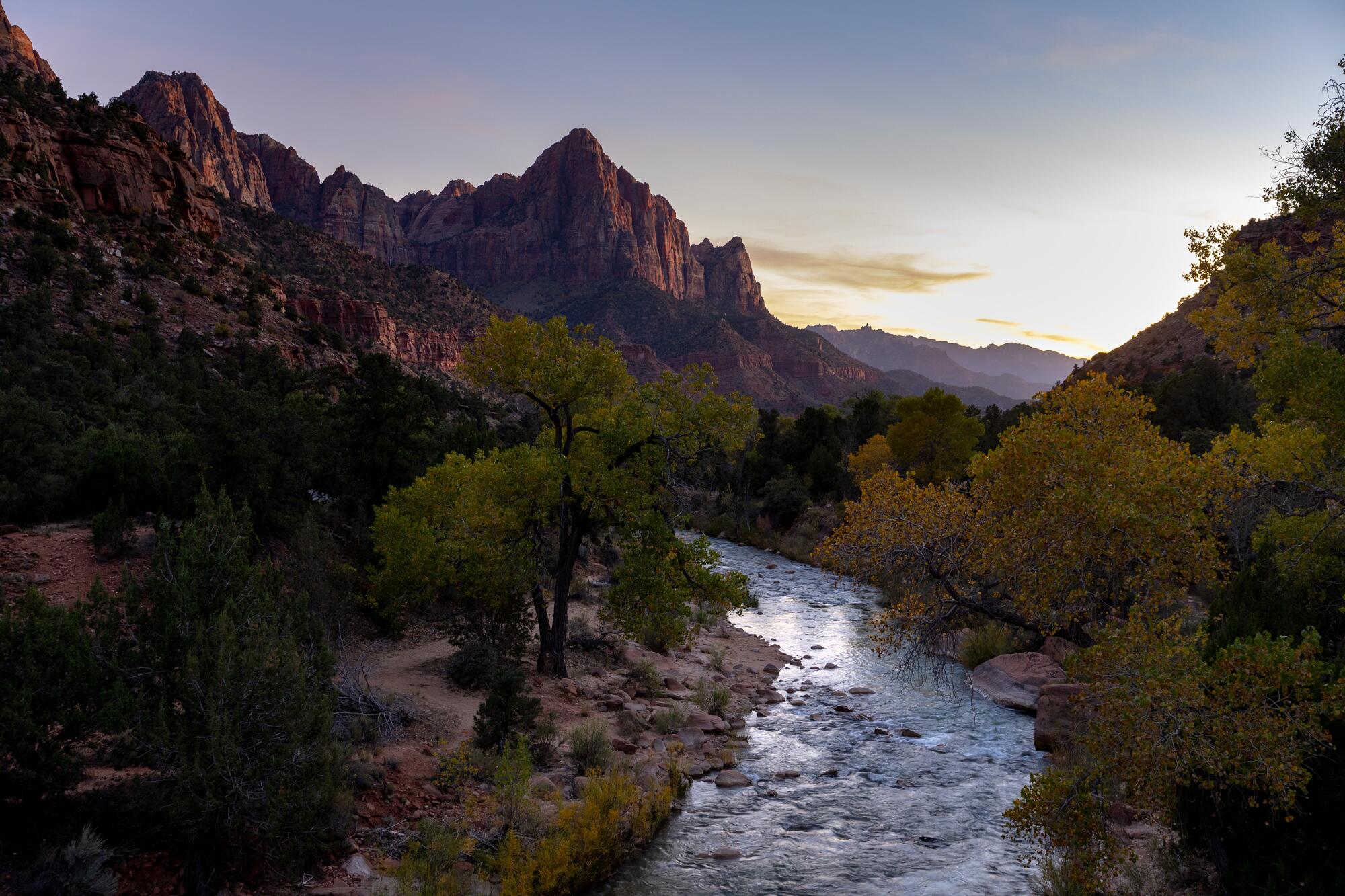
Today, the group provides grocery kits each month to 150 families in need; sharp-eyed motorists will spot signs along the 10 and 2 freeways touting its roadside cleanup efforts.
The group also organizes three Science Sundays a year for its 200 members — all-ages guided tours of scientifically significant places like the La Brea Tar Pits or Mt. Wilson Observatory. It also sponsors four secular-community parties, an occasional speaker series and a singalong every other month at “Heretic House,” a six-bedroom Victorian in Echo Park where the group’s longtime president Bobbie Kirkhart lived before her death in 2021.
Sedona’s energy vortexes beckon droves of spiritual seekers. But what is a vortex really — and is Sedona the only place to feel one?
Since becoming the organization’s first paid executive director in 2019, Clark has pushed it to create communal experiences for its members, which is where Atheist Adventures comes in.
“We started asking, ‘What are the needs in atheist communities?’” he said. “We want to have deep existential experiences and we crave community when we do it. And culturally, let’s make it ours.”
About 4% of people in the L.A. metro area described themselves as atheist in 2014 compared with 3% who identified as Jewish and 2% who identified as Muslim, according to the Pew Research Center. But most do not see atheism as an identity to seek community around.
Clark wants to change that.
“I always say that you can find community in your kid’s soccer league, but will they visit you in the hospital? Organize with you politically?” he said. “And would you want them to?”
I Heart Rationality
For a secular activist, Clark, 35, gives off serious youth pastor vibes — handsome, friendly, high energy and always on message. He doesn’t drink coffee or alcohol because, “I love rationality and I don’t want to [mess] with it.”
Clark, who also led atheist camping trips to Death Valley and Anza Borrego, tipped back in a camp chair one morning as he laid out plans for the next few days. He explained Atheists United’s no-tolerance policy on sexual harassment and let everyone know that he’d located showers a short walk from camp. “Because this princess needs a shower every day,” he said, gesturing toward himself.
There would be group hikes and plenty of time to hang out around the campground and peer through a 17.5-inch telescope brought by Dave Hasenauer — an agnostic, not an atheist — who was invited to facilitate stargazing.
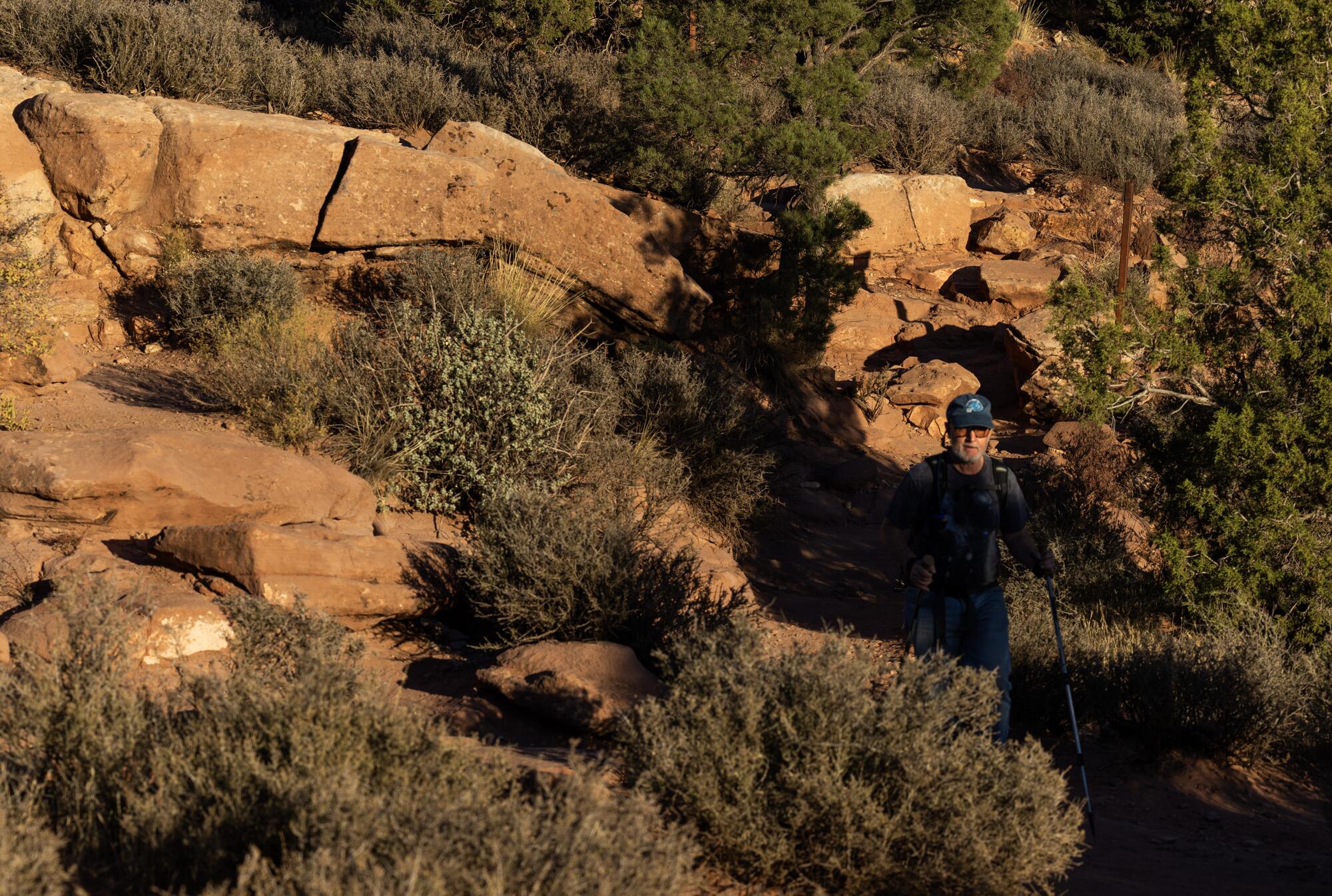
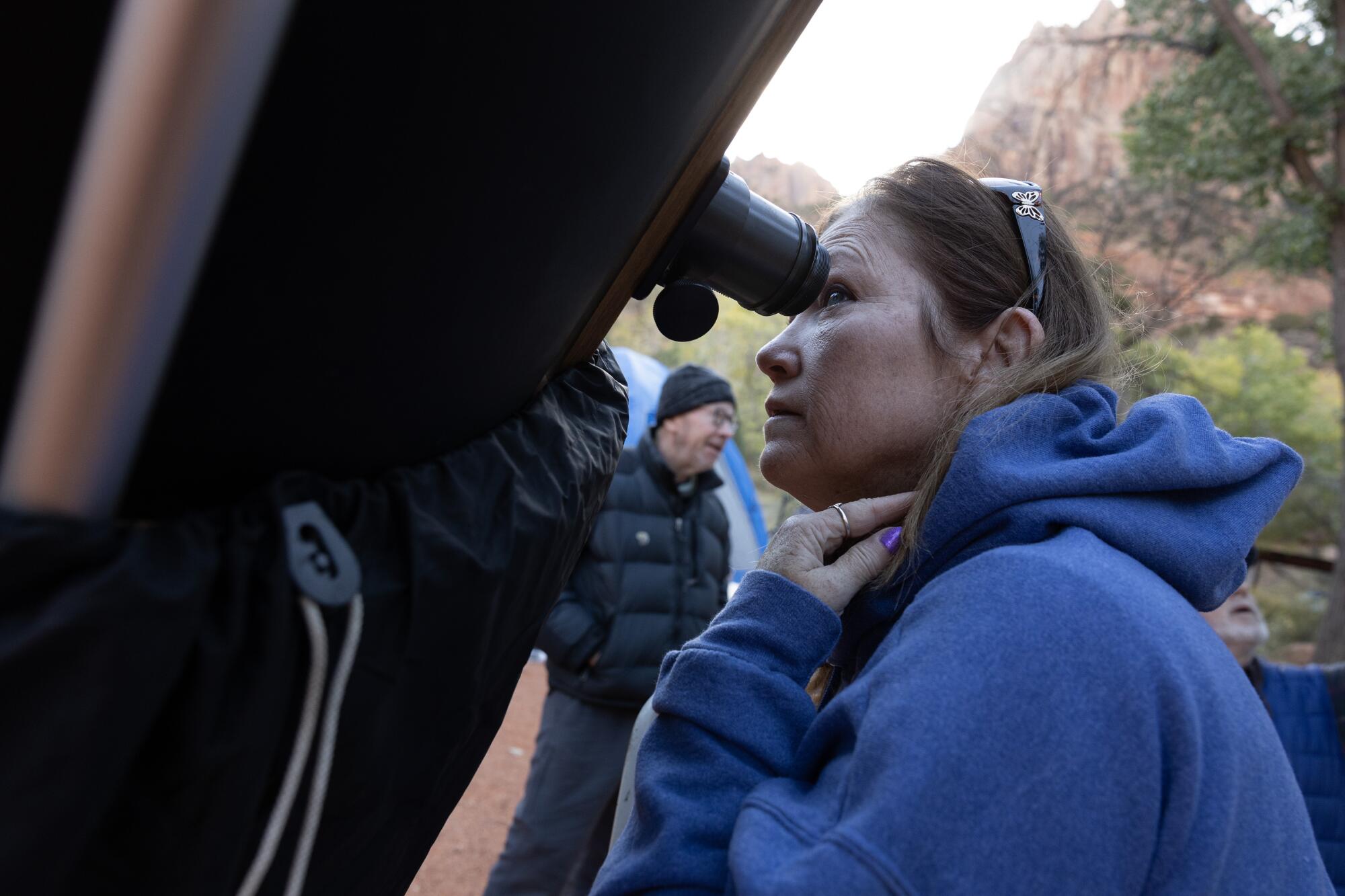
Of course, no activity was mandatory.
“One of the values in atheist communities is freedom, so you can have as much as you want,” Clark said.
Zion Canyon was named by Mormons in the late 19th century, and other landmarks bearing religious names abound — Hall of the Patriarchs, Tabernacle Dome, Cathedral Mountain. But as Clark reminded the group, the history of the landscape dates back much further than these names.
The red and white sandstone cliffs towering hundreds of feet above a narrow green canyon were carved by the Virgin River over the last million years. The river is gentle and slow most days, but when it floods it becomes a powerful agent of change, ripping cottonwood trees out of the ground and tossing large boulders through the park.
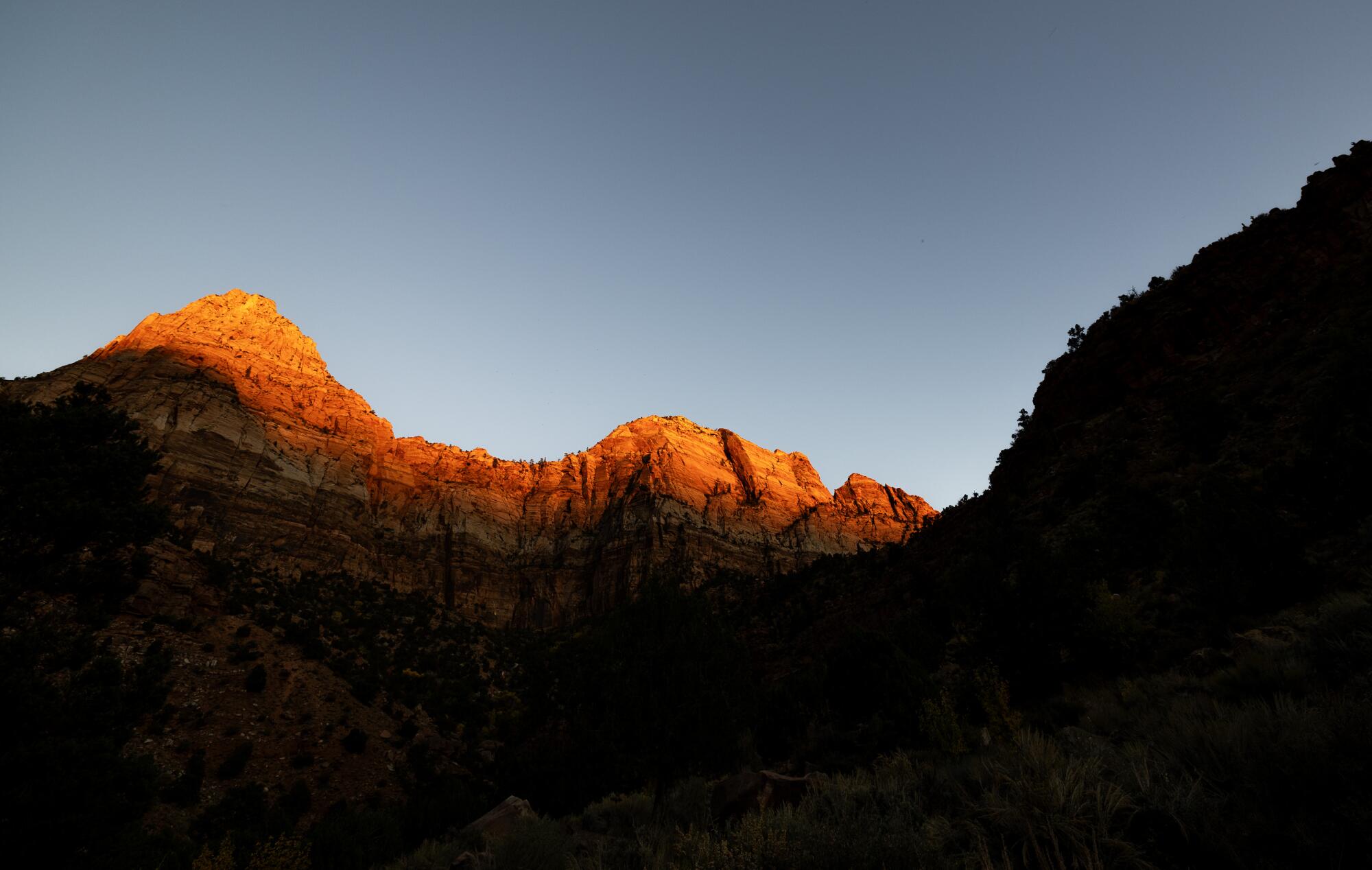
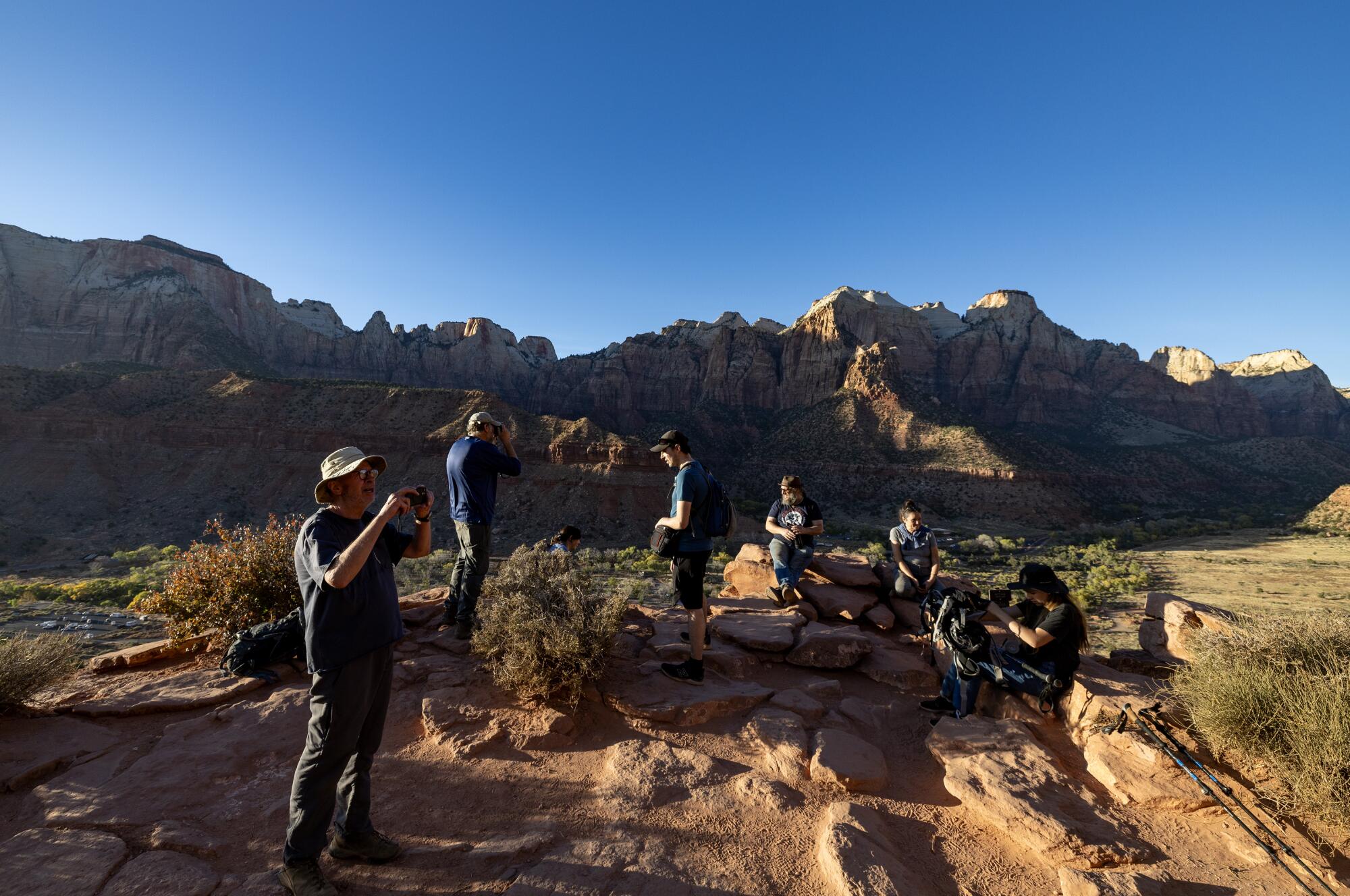
Zion, Mesa Verde, Arches, Grand Canyon and Joshua Tree all in one epic journey? We did it. Here’s how it played out.
That morning it was meandering quietly through a rocky riverbed as the Atheists United group disembarked from a shuttle bus that deposited them at the first hiking site, the 1.9-mile Riverside Trail. The sky was clear and the scenery staggering. Every few minutes someone stopped to take a picture as they talked about what brought them to Zion.
Rick Leff, a retired firefighter from Upland, said this was his fourth visit to the park and his first with Atheists United. He used to take a regular camping trip with a group of family and friends, but now he and his wife are no longer invited. Although he’s been questioning religion since he was 10 years old, he thinks that over time his status as a nonbeliever became too much of a barrier for some members of that group.
“Listen,” he said, his blue eyes stern. “I was in the military and I’ll stand with you if you’re religious, but don’t tell me what I can and can’t do because of religion.”
This trip to Zion was an experiment to see what camping with other nonbelievers was like, he said. So far, it was going well.
For Christine Jones, a semiretired music teacher from Los Angeles, this was her third Atheist Adventure. She became involved with Atheists United in 2011 after joining its choir — Voices of Reason. She was living in Orange County at the time but regularly made the drive to Los Angeles to be with others, who like her, were upset by the rise of Christian nationalism . Today, she sees building an atheist community as core to Atheists United’s mission.
“Community is not the exclusive domain of religion,” she said. “All humans have the right to community, whether or not one believes in God.”
As the group returned to the shuttle, Dan Feldman, a software developer in Ladera Heights, recalled the moment he realized in 2008 that he was a nonbeliever. Raised Jewish, he hadn’t questioned religion until he began reading “The God Delusion” by Richard Dawkins, a beloved prophet for many atheists. “I was on Page 26 and I said out loud, ‘Oh my God! I’m an atheist!’ ” he said.
Even so, Feldman still seeks out spiritual experiences.
“I would define spirituality as something that is emotionally overwhelming and that touches a deep spot in me,” he said. “When I saw Victoria Falls in Zambia, this massive, straight current of water …”
He trailed off as his eyes filled with tears.
“It’s happening to me again,” he said.
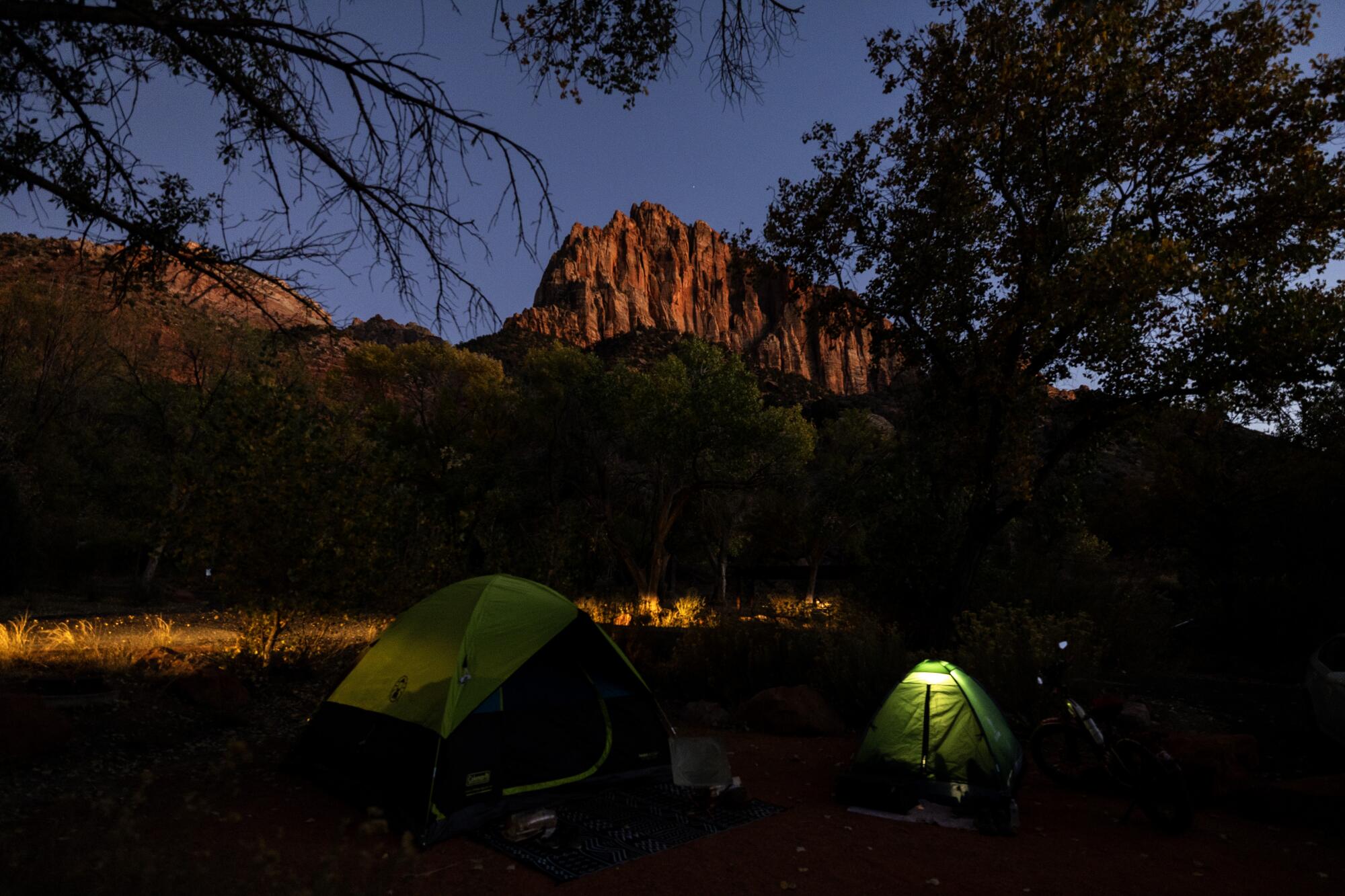
Later that night, the group gathered around the campfire beneath a glittering sky. The conversation touched on dating while secular, the psychological basis of demonic possession, the rise of astrology-loving atheists (“You’re kidding!” “Oh my God, I’m not!”) and how to respond to religious folks who insist that their morality is tied to their belief in God.
“Whenever somebody tells me, ‘If I didn’t have God I would rape and kill people,’ I’m always like, ‘then NEVER LEAVE GOD!’” Clark said. The others laughed loudly.
Aragon, who has been attending Atheists United’s secular Latino group for the past year, pulled a blanket around her shoulders as she shared with the group her struggle not to fall back on her Catholic upbringing when talking to her son after their cat died.
“I just wanted to tell him so bad, ‘You’re going to see your cat again one day,’ because I felt that would ease the pain,” she said. “But instead I just had to talk to him and have a conversation about how the cat was beautiful and he was loved, and he’s going to stay in our hearts forever.”
“Don’t you think that was better?” asked Katie Mandel, a piano and voice teacher sitting to Aragon’s right.
Aragon nodded. “I do feel it was better,” she said. “But then he was asking, ‘What’s going to happen when you die?’”
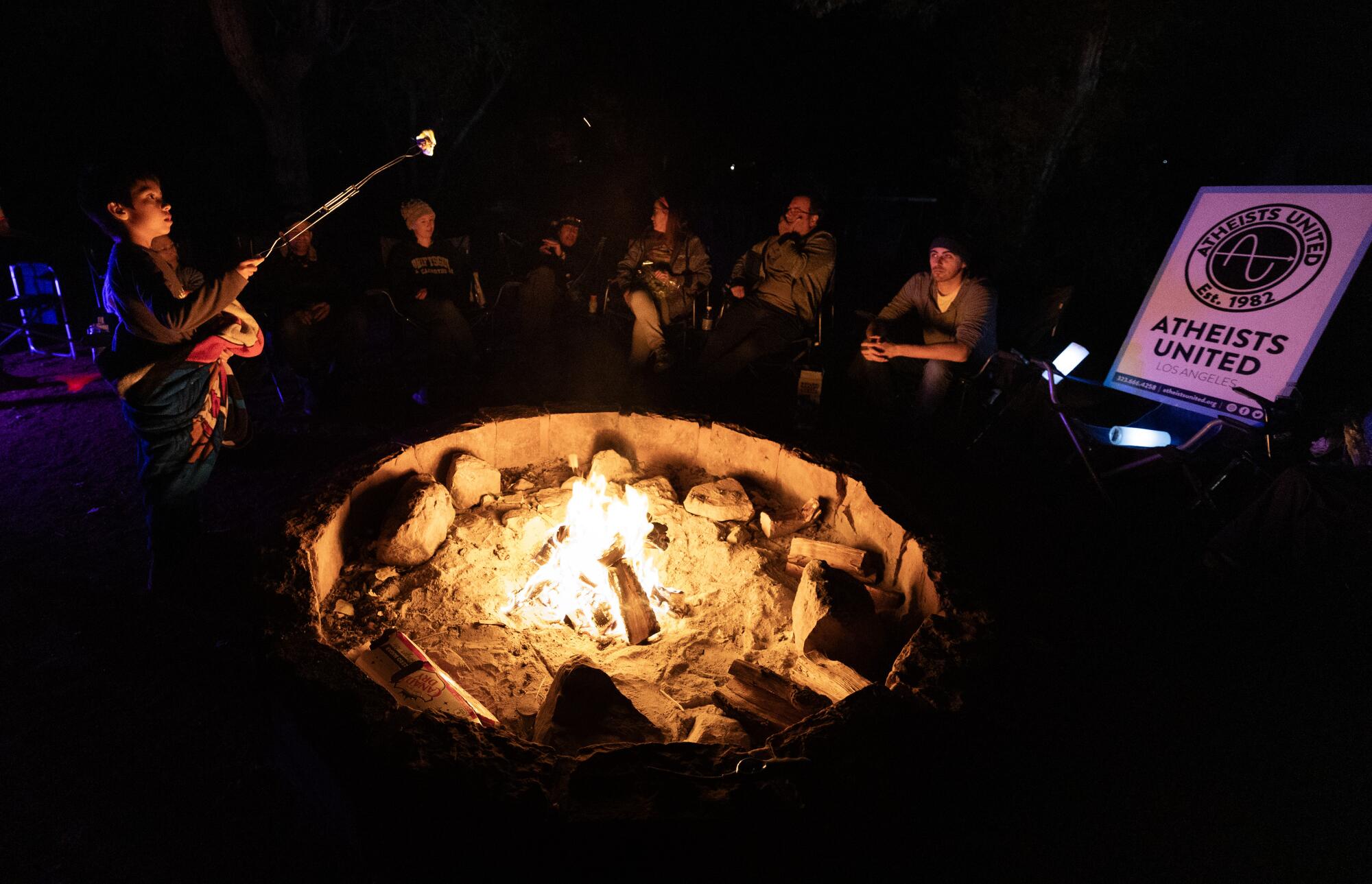
Toward the end of the evening, another question came up: whether mystery and the unknown are an essential part of the experience of awe.
“I take issue with the idea that wonder can only come from the unknown,” said Duncan Mandel, Katie’s husband and chairperson of Santa Clarita Atheists and Freethinkers, after taking a sip from a flask of whiskey. “Is it really all that surprising that a group of atheists could come to a place like this and just be flabbergasted and amazed and incredibly moved by what they see? I don’t get it. Why wouldn’t we?”
Carly Turro, an actor and writer and Clark’s girlfriend, nodded emphatically. It was beautiful to look through Hasenauer’s telescope and see the stars up close, she said, but even more incredible is the knowledge that the objects are 100 million light-years away.
“I got chills,” she said. “The fact that we have the ability to figure that out made it more meaningful. The science added to the wonder.”
‘In Cindy We Trust’
The next day, Feldman and Kelly McCauley, a retired engineer originally from Alabama, were sitting at a picnic table, gazing at the mountains glowing orange in the morning sun.
McCauley, who now lives in Las Vegas, was raised in a fairly conservative Lutheran church and kept his atheism to himself for decades. “I couldn’t talk to anyone about it,” he said.
Feldman nodded knowingly. “It’s very isolating when you first de-convert,” he said.
In Alabama, religion was all around him, McCauley said. “You join a running club and before you know it, someone is saying a prayer or saying God got them through a marathon,” he said. “I just don’t want to hear that.”
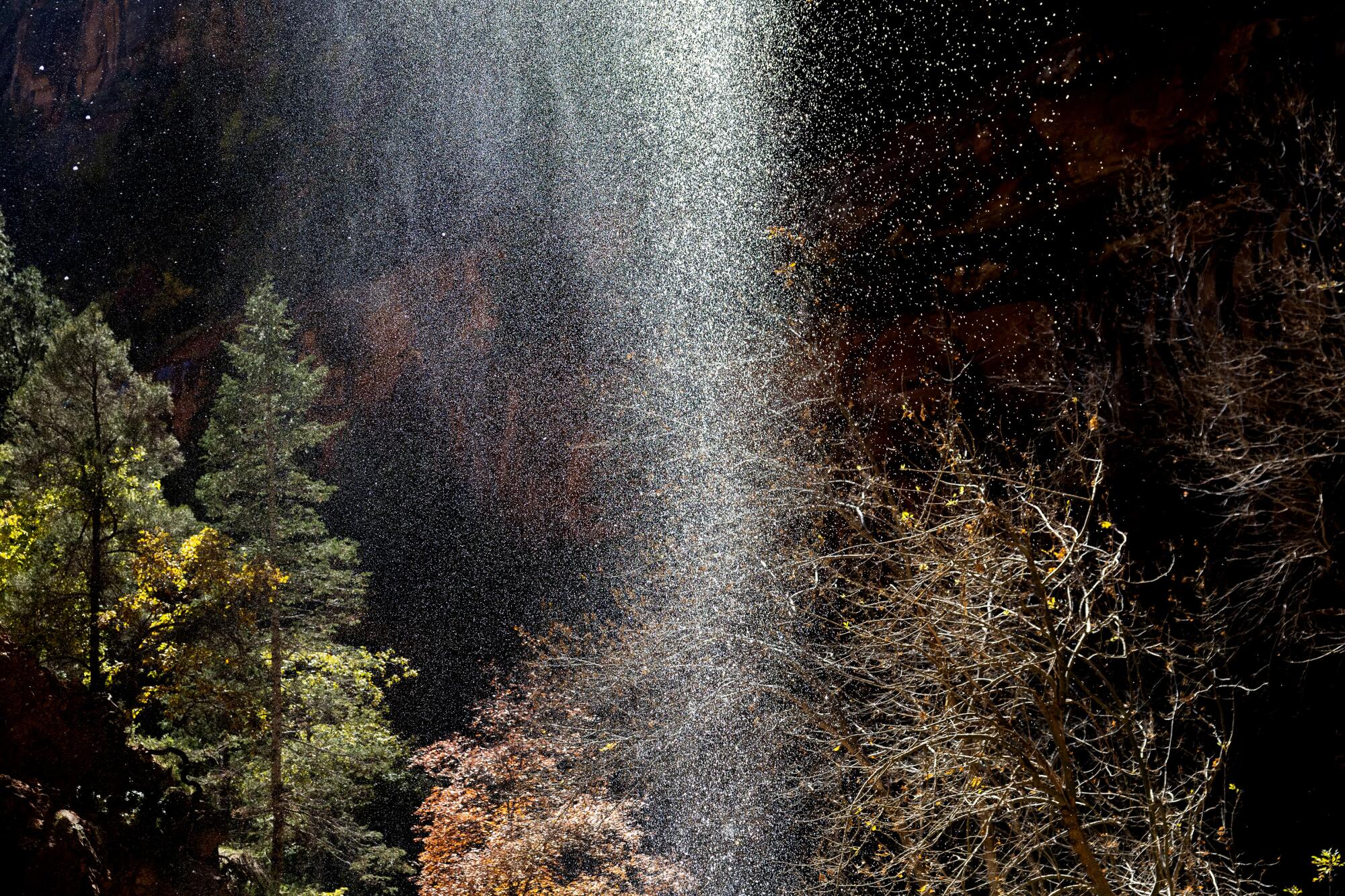
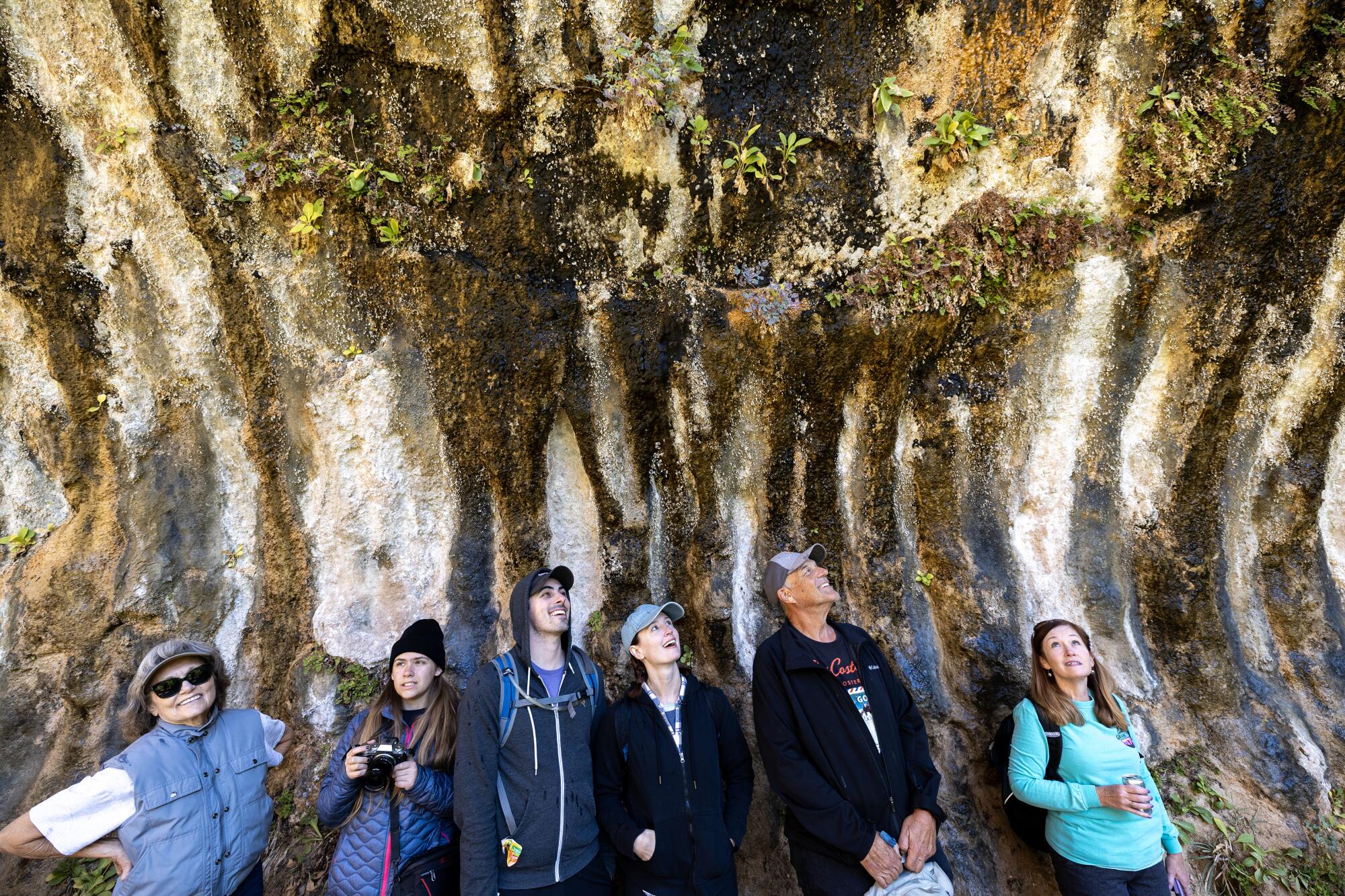
Eventually he joined a Myspace group for atheists in Huntsville where he met his future wife, Christie Swords. “There you are looking for mutual support compared to other places where [atheism] is a more usual thing,” he said. Now he and Swords have breakfast with other atheists in Vegas at least once a week. “We enjoy socializing with other nonbelievers,” he said.
Clark planned the toughest, and perhaps most beautiful hike for Saturday — the 2.4-mile Kayenta Trail to the Emerald Pools. The rocky sandstone trail offers expansive views of the main Zion Canyon and the Virgin River gleaming in the sunlight. At its apex, visitors arrive at a flat outcropping with small pools of water surrounded by sheer red cliffs.
On the shuttle bus to the trail head, the group was delighted to once again have a driver named Cindy, who talked merrily about rockslides, river floods and tarantulas.
“The all-knowing, omnipotent Cindy,” Clark said, grinning.
“Cindy, our new God,” joked Turro.
“In Cindy we trust,” added Swords. “I’m going to start putting her on my money.”
That night Clark had arranged for Hasenauer, who volunteers at Mt. Wilson Observatory, to talk about the evolution of the telescope before pointing his own telescope toward the heavens. Hsia was tasked with introducing him.
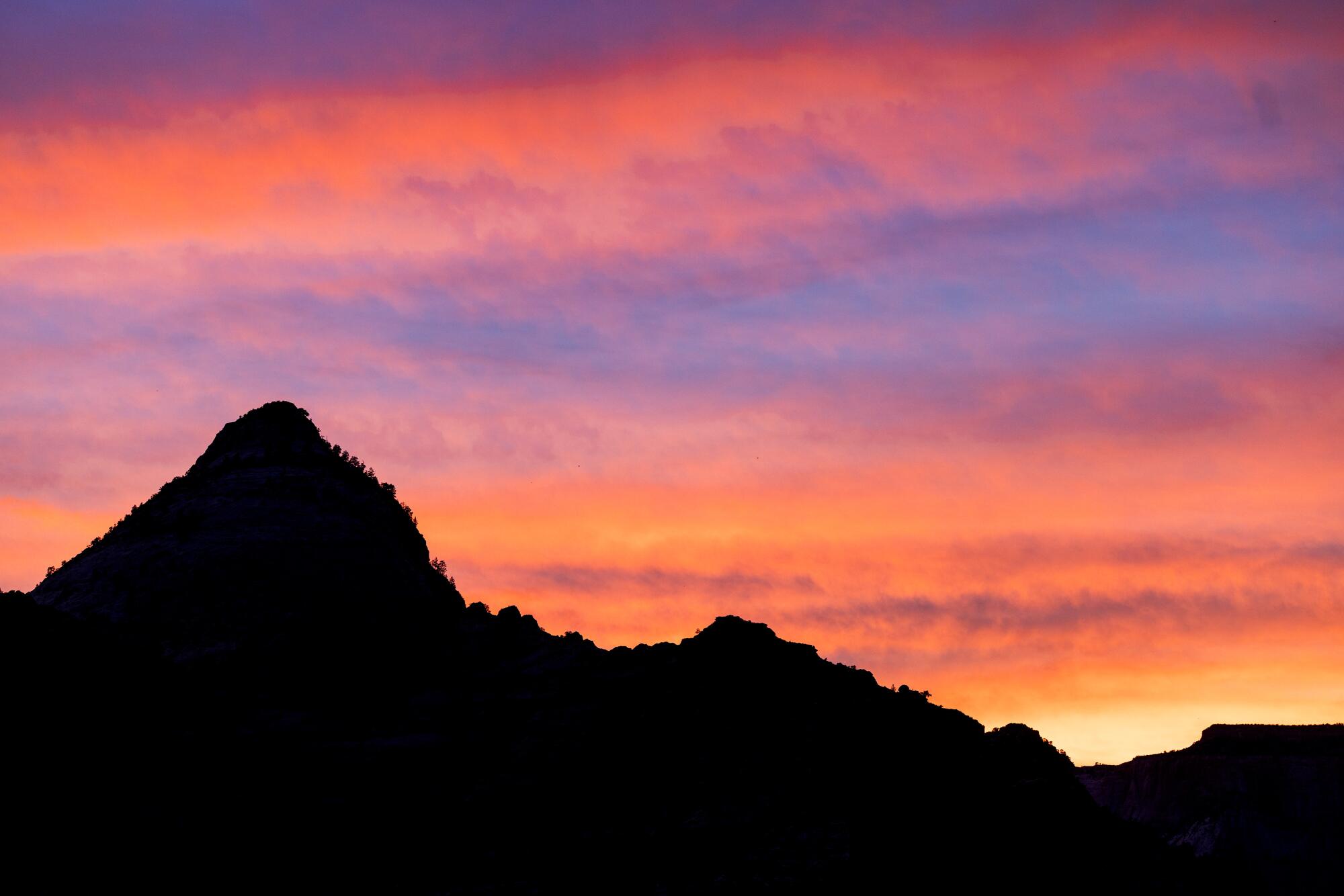
Standing before the group in her unlikely costume of Sulley, the giant furry creature from “Monsters, Inc.,” Hsia spoke about the perennially human act of peering into the infinite and seeking solace in the cosmos. She described stargazing as a way of shaking hands with the universe — a deep encounter with something vast and ancient and shared by all humanity.
“As members of Atheists United we may not gather in churches, but we understand the significance of experiencing awe, and tonight we are here to do just that,” she said. “We stand beneath a moonless night in the heart of this natural wonderland to feel into the infinite and feel awe that binds us together.”
Nobody said “Amen,” but the silence conveyed a palpable sense of assent.
More to Read
Sign up for The Wild
We’ll help you find the best places to hike, bike and run, as well as the perfect silent spots for meditation and yoga.
You may occasionally receive promotional content from the Los Angeles Times.
